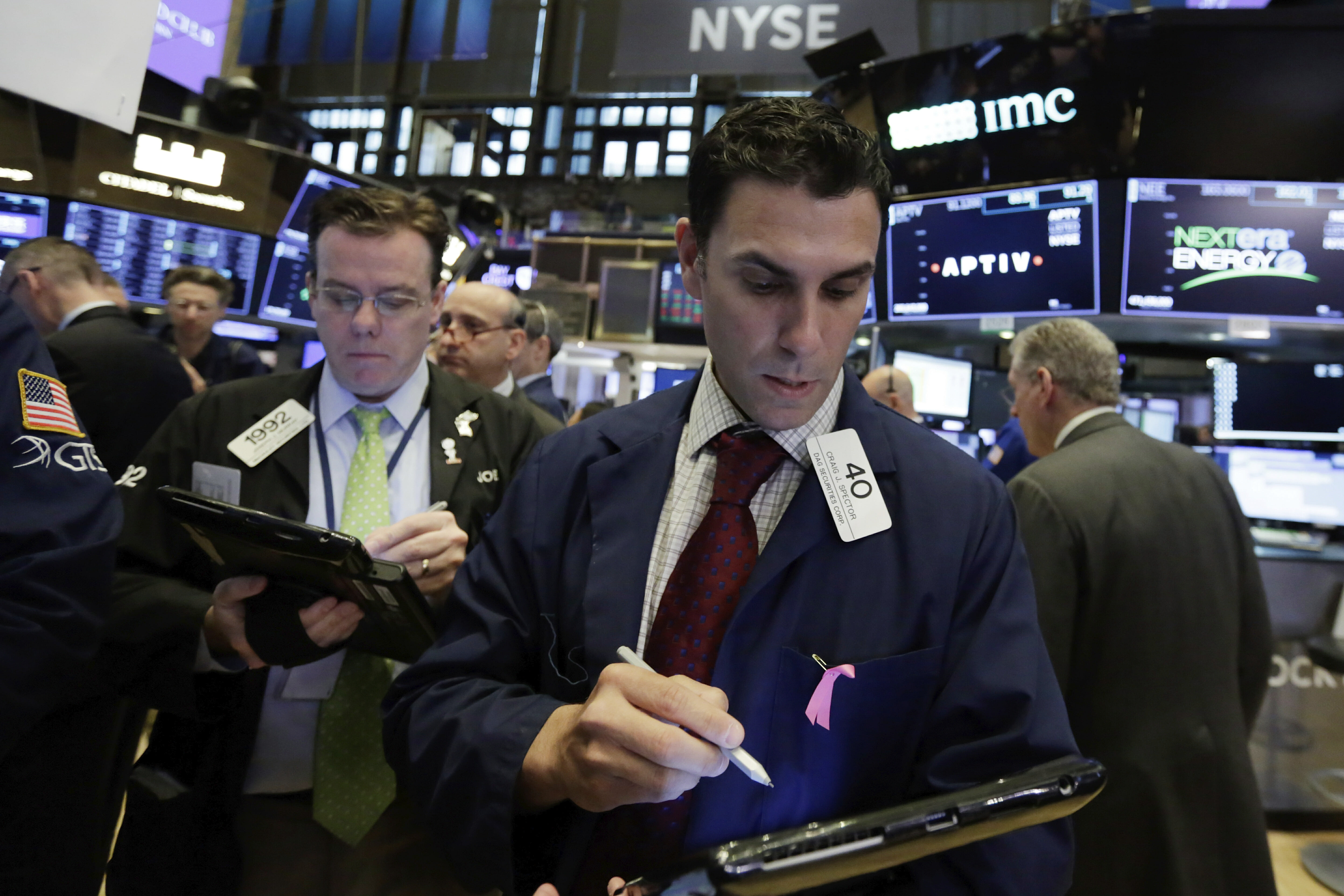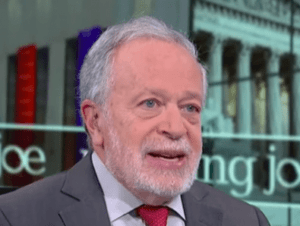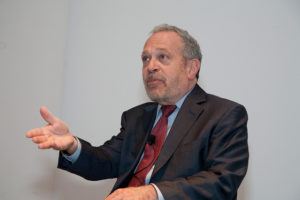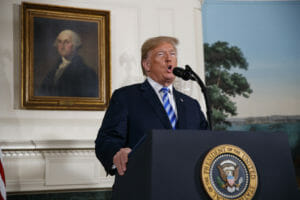Business Economists Suggest the U.S. Could Face a Recession in 2020
A rosy jobs report doesn’t tell the whole story. Traders on the floor of the New York Stock Exchange in May. (Richard Drew / AP)
Traders on the floor of the New York Stock Exchange in May. (Richard Drew / AP)
The media, along with the president, were awash in positive superlatives to describe the Labor Department’s May 2018 jobs report on Friday. Donald Trump was so excited he tweeted about it over an hour before the report was released, breaking years of federal protocol. The New York Times’ Upshot blog ran a headline stating: “We Ran Out of Words to Describe How Good the Jobs Numbers Are.”
Friday’s optimism has given way to Monday’s reality, however, as a new report from The Associated Press suggests that perhaps the economy, while buoyant for now, may be headed for a recession in 2020.
The National Association for Business Economists (NABE) indicates in its latest quarterly outlook that although Trump’s tax cuts are on track to give the economy a boost for a year, NABE researchers “worry that by 2020, the country could be entering a new recession.”
The panel of 45 economists who composed the report say they are “slightly less optimistic about the U.S. economy in 2018 than they were three months ago,” according to NABE Vice President Kevin Swift, chief economist at the American Chemistry Council.
The panel was particularly concerned about trade. As the AP explains:
Three-fourths of the NABE panel believes that current trade policies will have a negative impact on the economy. Trump last week imposed penalty tariffs on steel and aluminum imports from major U.S. trading partners—the European Union, Canada and Mexico—and he has threatened tariffs on up to $200 billion in Chinese imports, moves that could trigger a global trade war as the targeted nations pledge to retaliate.
The NABE brain trust thinks the economy will grow by 2.7 percent in 2019, below the level of 3 percent annually over the next decade that the Trump administration is touting. Some analysts fear that retiring baby boomers and weak productivity will exacerbate a potential downturn.
Two-thirds of the panel think the recession could hit in 2020, but 18 percent think it could happen even earlier, toward the end of 2019. Meanwhile, though headlines touted a 3.8 percent unemployment rate and a net gain of 223,000 jobs, overall labor force participation is down, and wages, even in those coveted newly created jobs, are not rising as predicted.
Your support matters…Independent journalism is under threat and overshadowed by heavily funded mainstream media.
You can help level the playing field. Become a member.
Your tax-deductible contribution keeps us digging beneath the headlines to give you thought-provoking, investigative reporting and analysis that unearths what's really happening- without compromise.
Give today to support our courageous, independent journalists.





You need to be a supporter to comment.
There are currently no responses to this article.
Be the first to respond.